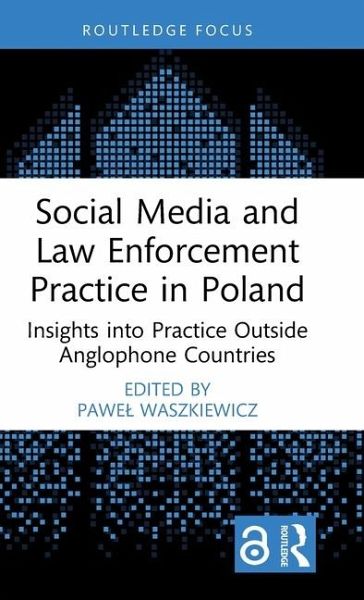
Social Media and Law Enforcement Practice in Poland
Insights into Practice Outside Anglophone Countries
Herausgegeben: Waszkiewicz, Pawel
Versandkostenfrei!
Versandfertig in 6-10 Tagen
58,99 €
inkl. MwSt.
Weitere Ausgaben:

PAYBACK Punkte
29 °P sammeln!
This book explores the role of social media in the daily practice of Polish criminal justice and how social media is, in turn, reshaping this practice. Based on empirical research, it confronts common beliefs about how police officers, prosecutors, and judges use social media in their work. Readers will find answers to the following questions: Which social media platforms are popular among law enforcement officers in Poland? How do the police use social media to investigate and prosecute crimes? What are the strategies for using social media to communicate with the community? What strategies a...
This book explores the role of social media in the daily practice of Polish criminal justice and how social media is, in turn, reshaping this practice. Based on empirical research, it confronts common beliefs about how police officers, prosecutors, and judges use social media in their work. Readers will find answers to the following questions: Which social media platforms are popular among law enforcement officers in Poland? How do the police use social media to investigate and prosecute crimes? What are the strategies for using social media to communicate with the community? What strategies are most successful?
The findings in this book challenge some popular beliefs and theories about social media in criminal justice. As the first book to explore the use of social media in criminal justice outside of English-speaking countries, this collection of academic research will be of interest to academics focusing on criminology, criminal justice, and policing and will be useful to police leaders and officers, police social media administrators, prosecutors, and judges, who may be inspired by the research to implement new successful and more effective practices.
The Open Access version of this book, available at www.taylorfrancis.com, has been made available under a Creative Commons Attribution-NonCommercial (CC-BY-NC) 4.0 International license. The costs of the Open Access publication were covered by the University of Warsaw under the Excellence Initiative Research University Action I.2.4 Supporting Open Access Publications.
The findings in this book challenge some popular beliefs and theories about social media in criminal justice. As the first book to explore the use of social media in criminal justice outside of English-speaking countries, this collection of academic research will be of interest to academics focusing on criminology, criminal justice, and policing and will be useful to police leaders and officers, police social media administrators, prosecutors, and judges, who may be inspired by the research to implement new successful and more effective practices.
The Open Access version of this book, available at www.taylorfrancis.com, has been made available under a Creative Commons Attribution-NonCommercial (CC-BY-NC) 4.0 International license. The costs of the Open Access publication were covered by the University of Warsaw under the Excellence Initiative Research University Action I.2.4 Supporting Open Access Publications.














